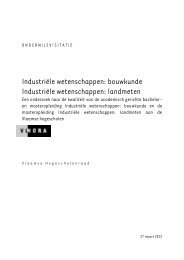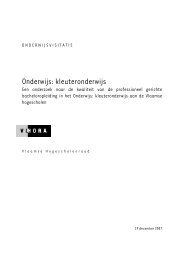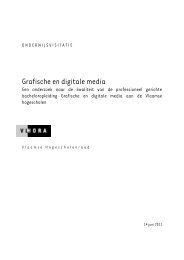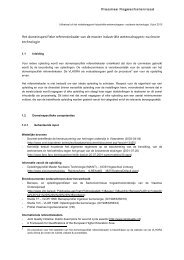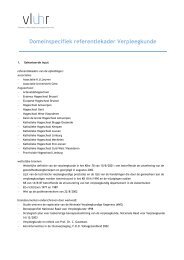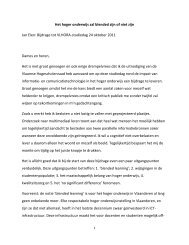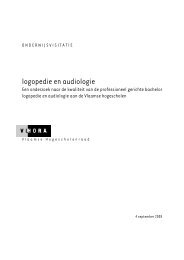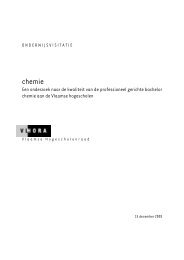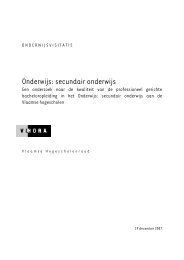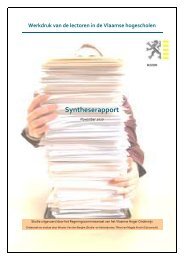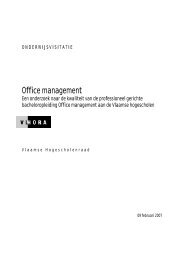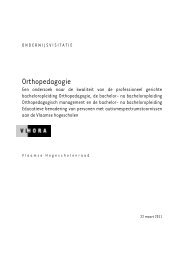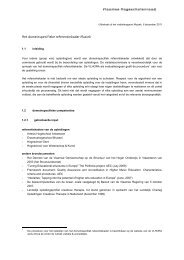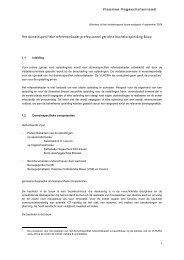Towards a Diversified, Responsive and Competitive European Higher
Towards a Diversified, Responsive and Competitive European Higher
Towards a Diversified, Responsive and Competitive European Higher
Create successful ePaper yourself
Turn your PDF publications into a flip-book with our unique Google optimized e-Paper software.
• work with national <strong>and</strong> sectorial organisations to promote recognition of prior learning (RPL) as ameans of credentializing the attainment of learning outcomes in non-formal <strong>and</strong> informal learningenvironments;• enhance - for the given purposes of collaboration <strong>and</strong> mutual dialogue with the employers, the worldof work <strong>and</strong> other stakeholders - responses to their needs, expectations <strong>and</strong> informing them ondevelopments, potential <strong>and</strong> capacity of higher-education institutions.C. Quality Assurance <strong>and</strong> Transparency ToolsQuality Assurance has been the domain where the cooperation of the Bologna Process stakeholders hasproven to be most effective. The E4 partners, ENQA, EUA, ESU <strong>and</strong> EURASHE received their m<strong>and</strong>ate firstto draft the <strong>European</strong> St<strong>and</strong>ards <strong>and</strong> Guidelines for Quality Assurance <strong>and</strong> then to set up the Register forQuality Assurance Agencies (EQAR). EURASHE continues, jointly with the ‘E4’ partners to contribute to theproceedings of the BFUG working group on Quality Assurance <strong>and</strong> Transparency Tools, as well as to thefurther development <strong>and</strong> review of the tools for quality assurance.As already formulated in our “10 Commitments”, EURASHE cooperates with international authorities <strong>and</strong>other stakeholders’ organisations to “identify <strong>and</strong> develop such qualitative <strong>and</strong> quantitative descriptors <strong>and</strong>indicators that will ensure the practical usefulness of the multidimensional instruments to the prospectivelearner”.EURASHE further holds the view that:• EQAR-registration reflects a shared trust, but not a choice of a quality assurance model or qualityassurance system. It is part of the mission of EQAR to guarantee a diversity in quality assurance models,but it is the responsibility of policy makers to choose a model that fits their national requirements;• it is a government responsibility to create clarity <strong>and</strong> transparency to stakeholders <strong>and</strong> society aboutthe external quality assurance, ranking <strong>and</strong> classification systems used in higher education. In thisoverall framework, each function or process in the mission of higher-education institutions, such asteaching <strong>and</strong> learning within a wide range of organisational management, research, student services<strong>and</strong> facilities etc., needs an appropriate approach <strong>and</strong> form of evaluation;• institutions may benefit from transparency tools that respect the diversity in higher education in anaccessible way, provided they are unequivocal, free from marketing considerations <strong>and</strong> are subject toindependent supervision.We urge Ministers to:• adopt quality assurance models that are in line with the principles <strong>and</strong> priorities of the BolognaProcess, of which they are supportive instruments rather than objectives in themselves;• affirm the institutions’ ownership of quality assurance, as a key instrument of their qualityenhancement, a basis of their accountability, <strong>and</strong> a reflection of their necessary autonomy;8



